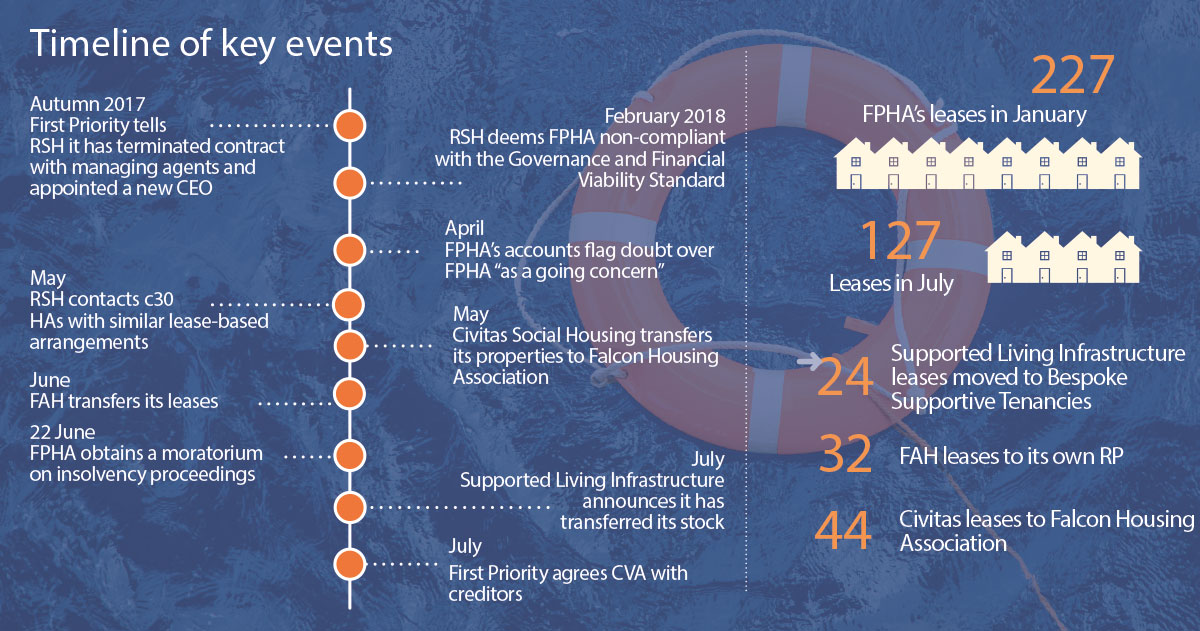Everything About Corporate Voluntary Agreement (CVA): Meaning and Usage.
Wiki Article
In-Depth Evaluation: The Refine and Importance of Company Volunteer Contracts
Corporate voluntary agreements play a pivotal function fit the landscape of company responsibility and sustainability methods. These agreements are not simply legal arrangements yet instead strategic initiatives that signal a dedication to honest company conduct and stakeholder involvement. Comprehending the complex procedure associated with developing these contracts and the precise approaches used during settlements gives important understandings into the characteristics of business decision-making and the quest of shared value. As we check out the complexities of implementation, evaluation, compliance, and monitoring connected with these arrangements, a much deeper appreciation of their influence on service procedures, reputation, and social health arises. The relevance and complex benefits of business volunteer arrangements appear, yet the nuances of their execution and the challenges encountered in their adoption warrant closer assessment.
Comprehending Business Voluntary Contracts
When diving into the realm of company volunteer contracts, it is necessary to comprehend the basic principles directing these critical arrangements. Company volunteer agreements are official commitments made by services to attain certain social, environmental, or honest goals past lawful demands. These agreements are willingly become part of by firms to demonstrate their devotion to responsible service methods and sustainability.One secret facet to comprehend concerning company voluntary agreements is that they are proactive measures taken by companies to attend to societal problems and improve their total influence. By willingly committing to certain standards or efforts, companies showcase their commitment to corporate social obligation and stakeholder interaction.
In addition, company voluntary arrangements commonly include cooperation with numerous stakeholders, including federal government bodies, non-governmental companies, and neighborhoods. This multi-stakeholder technique guarantees that the contracts are comprehensive, transparent, and straightened with the interests of all involved parties.
In essence, understanding corporate volunteer arrangements requires a deep appreciation of their voluntary nature, the purposes they aim to attain, and the joint efforts they involve to drive favorable change in the corporate landscape.
Arrangement Process and Techniques
Reliable arrangement procedures and techniques play an important role in the effective execution of company voluntary agreements. The negotiation procedure involves several events coming together to reach a mutually valuable agreement that meets the rate of interests of all stakeholders entailed.Techniques such as active listening, open communication, and analytic positioning are essential in promoting a collective negotiation environment. Active listening makes sure that all parties feel heard and understood, leading to increased trust fund and collaboration.
Moreover, preserving a considerate and specialist perspective throughout the negotiation process is vital to constructing strong relationships and attaining effective end results. By employing effective negotiation procedures and methods, corporations can navigate intricate agreements much more efficiently and guarantee the sustainable application of voluntary commitments.
Application and Compliance Procedures
Having actually successfully developed a strong foundation via effective negotiation processes and strategies, the following vital stage involves the meticulous preparation and execution of application and conformity measures in corporate volunteer agreements. Application procedures encompass the real release of the agreed-upon terms and actions laid out in the volunteer arrangement. This phase demands cautious coordination amongst all included parties to guarantee that the agreed-upon efforts are implemented effectively and successfully.Conformity procedures play an important function in guaranteeing that all parties included follow the conditions and terms specified in click to read more the voluntary arrangement. Tracking mechanisms, periodic evaluations, and transparent coverage systems are typically utilized to track development and guarantee liability. Non-compliance can cause reputational damages, legal ramifications, and a failure of trust fund amongst stakeholders, emphasizing the importance of robust compliance procedures.
To boost the effectiveness of execution and conformity measures, clear interaction, regular surveillance, and swift rehabilitative actions are necessary. By prioritizing these facets, organizations can maintain the integrity of their volunteer agreements and attain the preferred Visit Your URL end results while cultivating count on and liability within business ecosystem.
Monitoring and Evaluation Methods

Examination, on the various other hand, involves the methodical evaluation of the results and impacts of the voluntary arrangements - what is a cva in business. By evaluating the effectiveness of the carried out measures, business can determine whether the wanted objectives are being accomplished and identify areas for improvement. Analysis techniques may consist of surveys, interviews, data evaluation, and various other click to read more approaches to gather appropriate details for analyzing performance

Influence and Advantages of Arrangements
In recognizing the efficacy of business volunteer arrangements, it is important to examine the substantial impact and benefits that these contracts bring to both stakeholders and business. Business volunteer arrangements frequently lead to enhanced functional performances within firms.Furthermore, company volunteer contracts can cultivate far better connections between stakeholders and companies. Additionally, these arrangements typically drive innovation and competition within markets, as firms strive to meet and surpass voluntary commitments, leading to positive end results for both the business and the larger culture.
Conclusion
To conclude, business voluntary arrangements play an essential duty in advertising sustainability and company social duty. Through a structured settlement procedure, effective implementation procedures, and extensive surveillance and assessment strategies, these agreements can have a substantial influence on enhancing social and environmental results. The advantages of such contracts expand beyond conformity with regulations, promoting a society of responsibility and liability within the company industry. Generally, company voluntary contracts are a beneficial tool for driving positive adjustment and promoting lasting business methods.Business voluntary contracts play a crucial duty in forming the landscape of company duty and sustainability practices.Reliable negotiation processes and strategies play an essential function in the effective execution of company volunteer arrangements.Having effectively established a strong structure via reliable arrangement procedures and approaches, the following critical stage entails the careful planning and execution of implementation and compliance measures in company voluntary agreements (cva meaning business).In recognizing the efficacy of company volunteer arrangements, it is essential to examine the concrete effect and benefits that these contracts bring to both business and stakeholders.In final thought, business voluntary agreements play an important role in promoting sustainability and company social responsibility
Report this wiki page